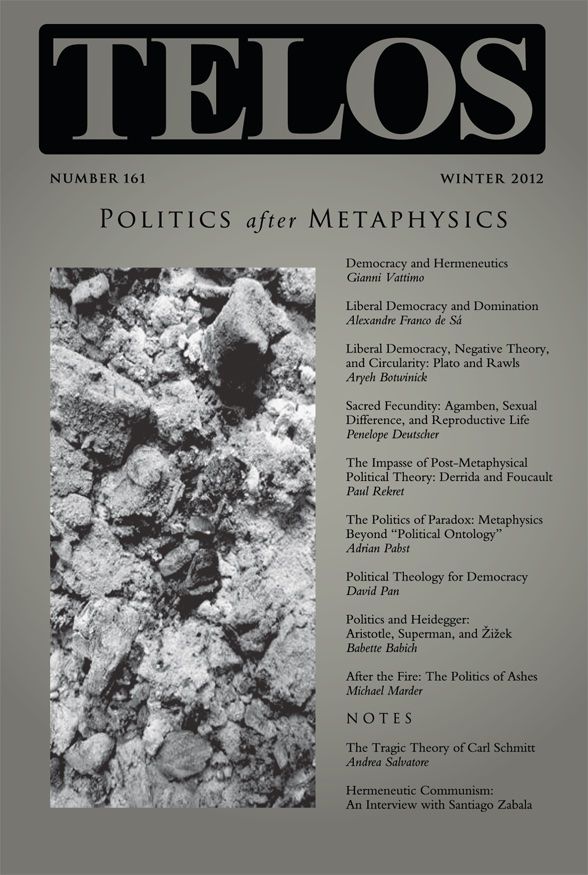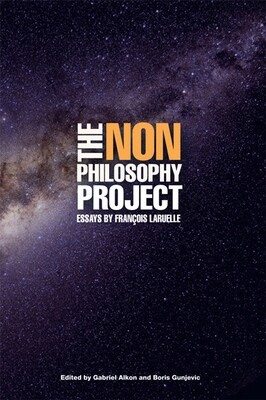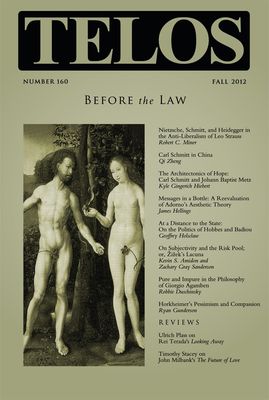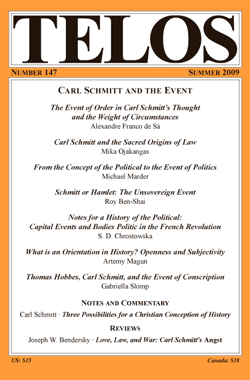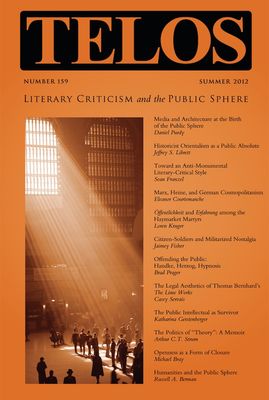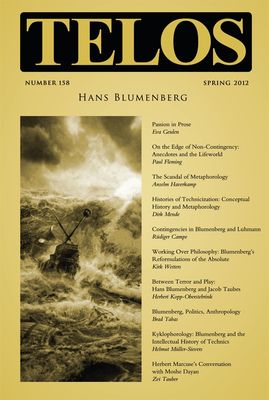Telos 161 (Winter 2012): Politics After Metaphysics
Politics After Metaphysics
Politics after metaphysics is the movement beyond idealism and realism, a multifaceted strategy of de-idealization that counters the paralyzing force of the Real, with its nagging insistence on the absence of viable alternatives. It is a politics that embraces finitude and rejects foundationalism; a politics of becoming, not that of being; a politics that questions and undermines such basic political concepts as sovereignty and oppositionality; a politics that favors paradox over contrived consistency; a politics of proliferating differences, which cannot be gathered into the all-powerful One; a politics of experience, not of universal abstractions. In a word, it is a politics of and for the crisis, one that reiterates the fissures, clashes, and divisions evident in the term’s Greek etymology. In outlining the multiple dimensions of politics after metaphysics, the essays comprising this special issue of Telos, in various ways, retrace the shapes of the crisis, permitting us to think it through and to think through it.
Introduction
Michael Marder and Russell A. Berman
Liberal Democracy and Domination: A Cryptopolitics of Populations
Alexandre Franco de Sá
Liberal Democracy, Negative Theory, and Circularity: Plato and John Rawls
Aryeh Botwinick
Sacred Fecundity: Agamben, Sexual Difference, and Reproductive Life
Penelope Deutscher
The Impasse of Post-Metaphysical Political Theory: On Derrida and Foucault
Paul Rekret
The Politics of Paradox: Metaphysics Beyond "Political Ontology"
Adrian Pabst
Political Theology for Democracy: Carl Schmitt and John Dewey on Aesthetics and Politics
David Pan
Politics and Heidegger: Aristotle, Superman, and Žižek
Babette Babich
After the Fire: The Politics of Ashes
Michael Marder
Notes and Commentary
The Tragic Theory of Carl Schmitt
Andrea Salvatore
Hermeneutic Communism: An Interview with Santiago Zabala
